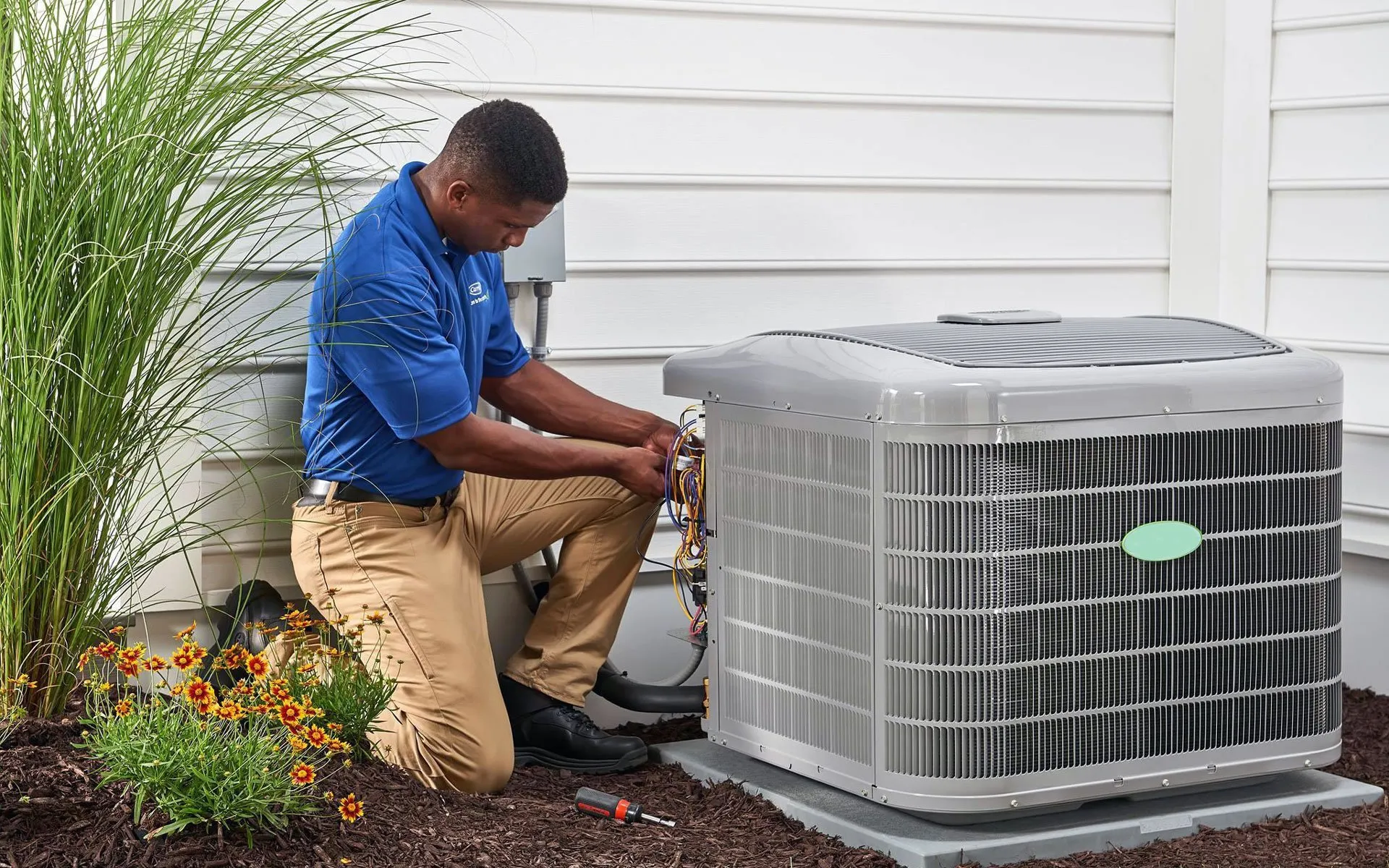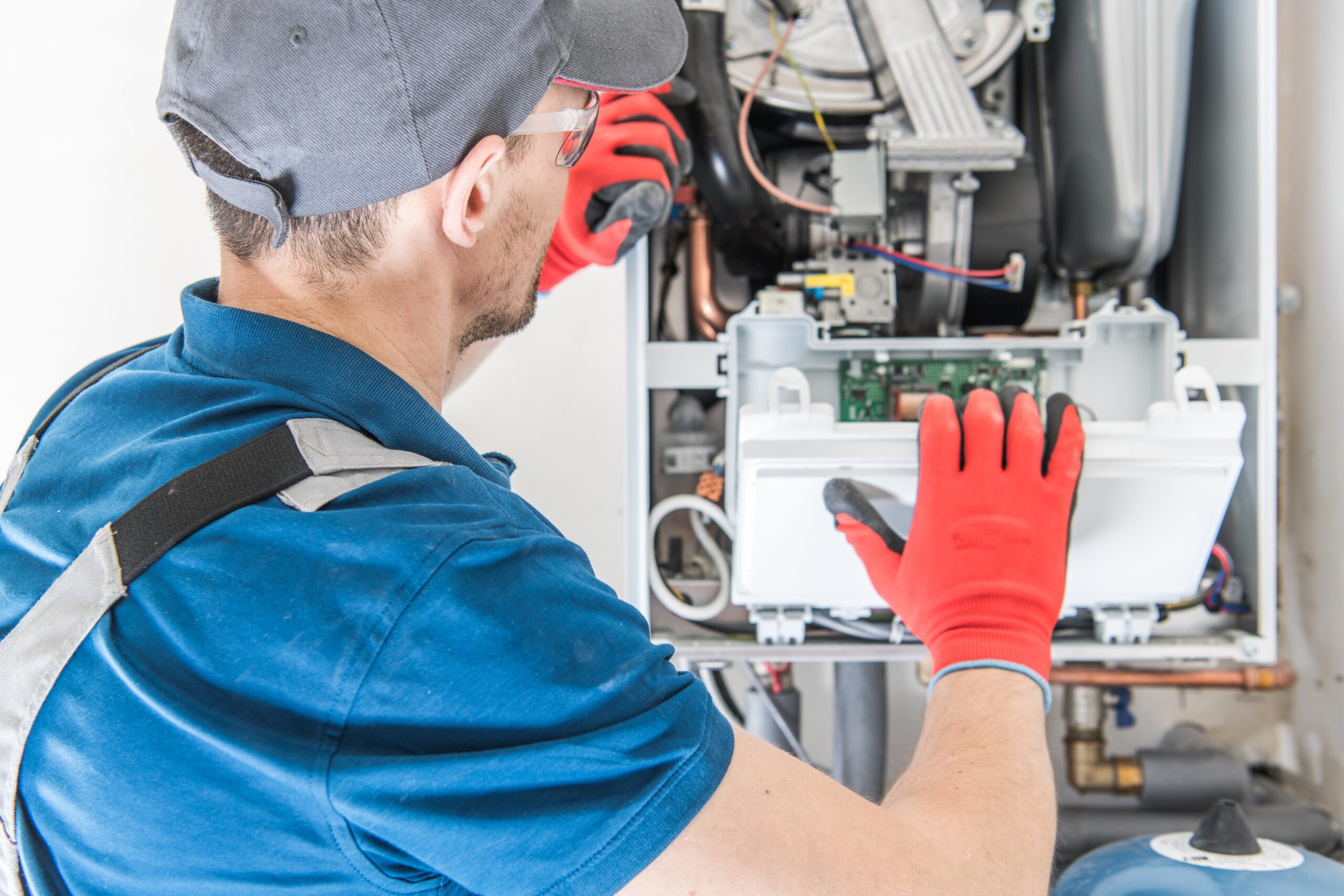How to Save on Your furnace replacement Project
How to Save on Your furnace replacement Project
Blog Article
Picking Between a Heatpump and Heater: Secret Considerations for Your A/c Requirements
When examining heating options for HVAC requires, the decision between a heatpump and a heating system can be complicated. Each system offers distinctive benefits tailored to details environments and energy efficiency objectives. Comprehending these distinctions is necessary for making an educated choice. Trick aspects such as installation prices and ecological impact further make complex the selection procedure. Which choice really aligns with one's convenience and sustainability preferences? The adhering to sections will certainly explore these factors to consider in information.
Comprehending Warm Pumps: Exactly How They Function and Their Benefits
While numerous house owners think about various home heating choices, understanding how warmth pumps function and their benefits can significantly affect their decision. Heatpump run by moving heat instead of generating it. In the winter months, they draw out warmth from the outside air or ground and move it indoors, while in the summertime, they reverse this process, cooling down the home by eliminating warmth outside. This double capability makes them functional for year-round climate control.One of the primary advantages of heat pumps is their energy efficiency. They make use of considerably less electrical power compared to traditional heater, possibly causing reduced energy bills (heat pump service). Additionally, heat pumps have a smaller sized carbon footprint, making them an eco-friendly option. They additionally need less maintenance than standard systems, adding to long-term cost savings. Overall, understanding the auto mechanics and benefits of heatpump can help home owners make informed decisions concerning their heating and cooling down needs
Discovering Furnaces: Types, Operation, and Benefits
Furnaces can be found in different types, including gas, electric, and oil designs, each with unique operational devices. Recognizing these distinctions is necessary, as they affect efficiency and heating performance. Additionally, heating systems offer many benefits, such as constant warm output and dependability in cooler climates.
Sorts of Furnaces
Heater can vary considerably in style and operation, with heating systems being a popular choice among home owners. There are several kinds of furnaces, each utilizing various fuel sources and technologies. Gas heaters prevail, leveraging gas to produce warmth efficiently. Electric heating systems, on the other hand, use electrical resistance to create heat, often favored for their straightforward setup. Oil furnaces, while much less common, work in locations with restricted gas accessibility (ductless mini splits). In addition, condensing furnaces take full advantage of power performance by capturing and reusing exhaust gases. Each type operates via a system of heat exchangers and ductwork to disperse warm air throughout a home. Recognizing the distinctions between these heating system kinds is essential for educated a/c choices
Benefits of Heaters
For house owners looking for trustworthy heat throughout chilly months, the benefits of furnaces are substantial. Heaters offer constant home heating, ensuring also temperatures throughout the home. They are particularly reliable in severe cool, usually exceeding heatpump in cold conditions. Different types, including gas, electric, and oil heaters, provide flexibility to satisfy varied demands and preferences.Furnaces likewise have a tendency to have reduced preliminary installation costs contrasted to heatpump, making them an extra easily accessible choice for several. Their durable layout adds to a longer lifespan, with several devices lasting over 15 years with proper maintenance. Additionally, contemporary heaters are often outfitted with sophisticated innovation for improved performance, which can cause reduced power costs. Generally, heaters continue to be a trustworthy option for reliable home heating.

Energy Performance: Comparing Warm Pumps and Furnaces
When contrasting energy performance between heat pumps and furnaces, the Seasonal Power Performance Proportion (SEER) plays a necessary function in determining performance. Furthermore, a functional cost analysis reveals the lasting economic implications of each system. Understanding these factors can direct house owners in making notified decisions regarding their home heating remedies.
Seasonal Power Performance Ratio
Energy effectiveness plays a necessary role in the decision-making process between heatpump and heating systems, especially when considering the Seasonal Energy Performance Ratio (SEER) This statistics measures the cooling effectiveness of heatpump over an entire cooling season, offering a standardized method to evaluate performance. Higher SEER scores indicate greater power effectiveness, translating to reduced energy consumption and lowered utility bills. In contrast, heaters are usually analyzed utilizing the Yearly Fuel Usage Effectiveness (AFUE) score, which reflects heating effectiveness. When contrasting these 2 systems, house owners should prioritize SEER ratings for warm pumps, as they directly influence total power cost savings and ecological sustainability. A comprehensive understanding of SEER can especially visit this website influence the lasting contentment and cost-effectiveness of the chosen heating and cooling option.
Functional Expense Evaluation
Recognizing the operational expenses associated with heatpump and heaters is important for home owners evaluating their options. Warm pumps typically use higher energy efficiency, transforming electrical energy right into warm with minimal waste. This results in reduced monthly utility costs, particularly in moderate environments. Conversely, traditional furnaces, specifically gas designs, might have reduced ahead of time costs yet can sustain greater operational expenses over time because of sustain prices and efficiency ratings.Moreover, heatpump can work as both heating and cooling systems, potentially lowering the requirement for separate HVAC devices. While initial investments for heat pumps may be higher, their lasting savings in power efficiency can make them a more economical option for several households. Careful evaluation of neighborhood energy prices is important to identify the very best choice.
Setup Prices: What to Anticipate for each and every Furnace
Setup prices for heating unit can vary significantly in between warmth pumps and furnaces, affecting homeowners' decisions. Heatpump typically have greater in advance installation expenses, typically ranging from $3,500 to $8,000, depending on the system dimension and intricacy of installment. This consists of the exterior unit, indoor handling system, and necessary ductwork modifications. On the other hand, heating systems often tend to have reduced preliminary expenses, averaging in between $2,500 and $6,000, which can be appealing for budget-conscious property owners. However, setup expenses can increase if considerable ductwork is required.Moreover, the option of gas type for heating systems-- gas, propane, or electric-- can also affect installment prices. While heatpump offer energy performance, their first financial investment might deter some purchasers. Eventually, evaluating setup costs along with long-term savings and effectiveness will aid house owners in making notified decisions concerning their home heating systems.
Climate Factors To Consider: Which System Executes Better in Your Area
How do environment problems affect the effectiveness of furnace? The efficiency of heatpump and furnaces can vary significantly depending upon the regional climate. In modest environments, heatpump excel by efficiently transferring heat from the outside air, making them an energy-saving choice. Nevertheless, their effectiveness decreases in very cool temperature levels, where they may have a hard time to remove enough warm. On the other hand, furnaces, especially gas designs, provide trustworthy and consistent warmth no matter outdoor conditions, making them better in cooler regions.In areas that experience milder winter seasons, warm pumps can run effectively year-round, offering both heating & cooling. In contrast, areas with rough Read Full Article winter seasons often gain from the toughness of furnaces. Eventually, comprehending the neighborhood climate is necessary when determining between a heatpump and a heating system, as it directly impacts their functional efficiency and overall performance.
Upkeep Needs: Long-Term Look After Heat Pumps vs. Furnaces
While both heatpump and heaters call for regular maintenance to guarantee peak performance, their particular needs and treatment regimens differ significantly. Heating systems commonly need less frequent attention, with yearly inspections sufficing to look for gas leakages, clean filters, and analyze general functionality. Their easier layout typically enables simple repairs.In contrast, warm pumps demand biannual upkeep because of their dual role in heating & cooling. This includes cleaning coils, inspecting cooling agent levels, and ensuring that both the outdoor and indoor devices operate at their best. Additionally, warm pump maintenance typically entails more complex components, making expert servicing essential.Neglecting upkeep can cause diminished effectiveness and boosted power expenses for both systems. Ultimately, homeowners ought to consider these long-term treatment requirements when selecting between a heatpump and a furnace, as proactive maintenance can extend the life expectancy and efficiency of either system substantially.
Environmental Influence: Selecting a Lasting Heating Option
The environmental effect of heating systems is a vital evaluation for homeowners seeking sustainable choices. Warm pumps are typically more energy-efficient than typical heating systems, as they move heat rather than create it, greatly decreasing carbon exhausts. By making use of renewable resource resources, such as air-source or geothermal heat pumps, home owners can further reduce their environmental footprint.On the various other hand, all-natural gas furnaces release greenhouse gases and add to air contamination, though they typically give higher warmth output. Innovations in innovation have led to the advancement of high-efficiency heaters that lessen emissions.Ultimately, picking a home heating system involves considering efficiency against environmental impact. Home owners are encouraged to review neighborhood power resources and motivations for renewable systems, making certain a selection that lines up with both personal comfort and environmental responsibility. The choice affects not only immediate convenience yet also lasting sustainability and environmental wellness.
Often Asked Questions
The Length Of Time Do Heat Pumps and Furnaces Commonly Last?
The lifespan of heat pumps typically varies from 15 to 20 years, while furnaces can last between 15 to three decades. Normal maintenance considerably special info impacts their long life and effectiveness in supplying home heating options.
Can I Use a Heatpump in Very Cold Climates?
Warm pumps can run in exceptionally chilly environments, but their effectiveness lessens as temperatures drop. In such conditions, additional heating resources may be essential to maintain comfortable interior temperatures and ensure peak efficiency.

What Is the Sound Level of Heat Pumps Versus Furnaces?
The sound levels of heatpump and heating systems vary significantly. Normally, warm pumps run more silently than conventional heaters, making them better for those delicate to seem, while furnaces might produce louder functional sounds during home heating cycles.
Are Warmth Pumps Suitable for Both Home Heating and Cooling?
Heat pumps are indeed suitable for both heating & cooling (heat pump service). They operate by transferring warm, supplying effective temperature level control year-round, making them a flexible choice for property owners looking for an all-in-one a/c option
What Dimension Heater Do I Need for My Home?
Identifying the proper size heating system for a home requires reviewing factors such as square video footage, insulation high quality, neighborhood climate, and the home's design. Consulting a professional can ensure an exact analysis and ideal convenience. Warm pumps generally supply higher power efficiency, converting electric power into warmth with marginal waste. In moderate environments, warmth pumps stand out by efficiently transferring heat from the outdoors air, making them an energy-saving alternative. Conversely, heating systems, specifically gas versions, offer consistent and reliable heat regardless of outside conditions, making them more suitable in colder regions.In areas that experience milder winter seasons, warm pumps can run efficiently year-round, providing both heating and air conditioning. Warmth pumps are normally extra energy-efficient than typical heating systems, as they transfer warmth instead than create it, considerably lowering carbon discharges. By utilizing eco-friendly energy resources, such as geothermal or air-source warm pumps, property owners can further lessen their environmental footprint.On the other hand, all-natural gas furnaces emit greenhouse gases and contribute to air pollution, though they usually give higher heat output.
Report this page